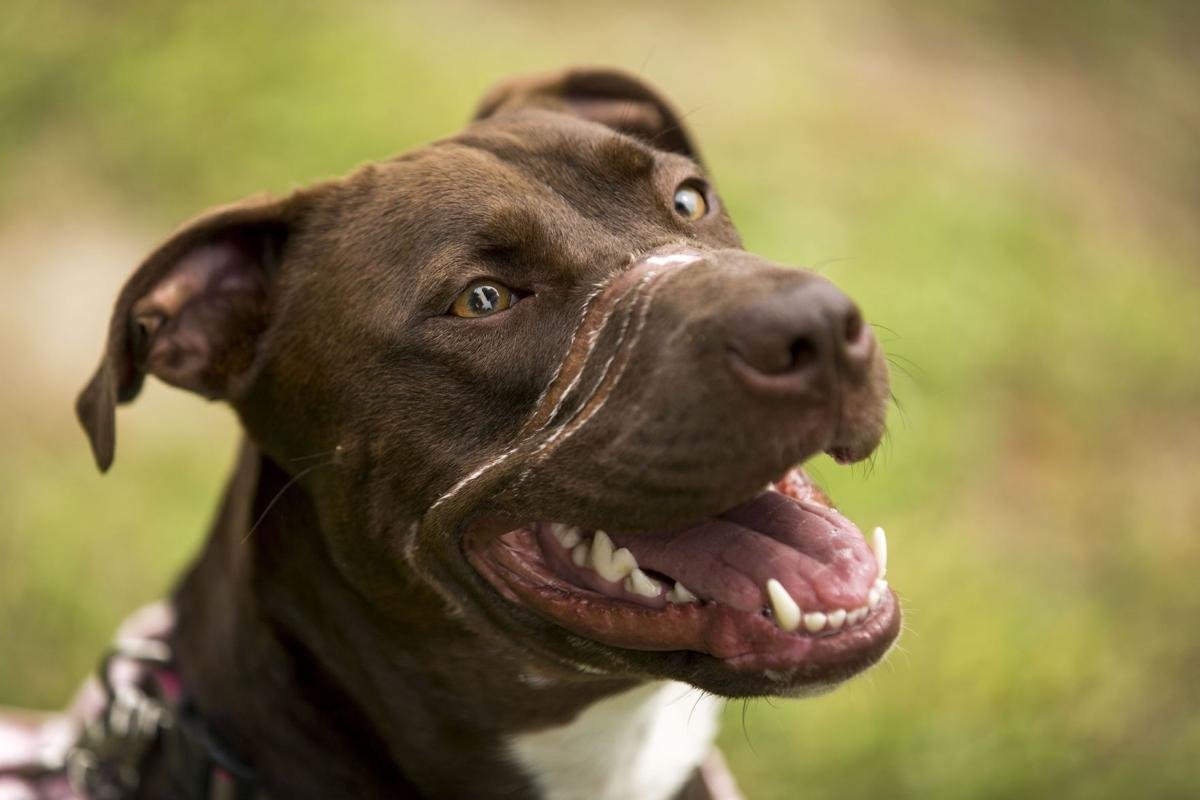When a man near Adams Run struck a 1-year-old pit bull over the head with a shovel last month and tried to bury it alive, authorities were swift to react.
Charleston County sheriff’s deputies responded Aug. 25 to a home on S.C. Highway 162 and took 41-year-old David Ryan Beach into custody.
Beach told deputies the dog had “behavioral issues,” including urinating inside his home, so he took it to the backyard and tried to kill it with the shovel, according to an incident report.
The dog, Xena, survived despite suffering a fractured skull and broken ribs, the report said.
Beach was charged with felony ill treatment of animals and given a $100,000 bond. As of Friday, he remained in custody at the Cannon Detention Center.
Although experts say South Carolina’s legal system handles incidents like Beach’s case with few problems, not every case comes together so clearly.
On Aug. 6, a man went to a hotel off Rivers Avenue in North Charleston to track down his ex-girlfriend. At the hotel, he found the woman’s daughter and her dog. The man took the dog, named Poo, and hurled it into busy afternoon traffic.
Poo survived.
More than one month later, the case remains at a standstill, even though officers interviewed eyewitnesses and identified a suspect.
Poo’s owner has yet to sign the arrest warrants police need to file charges.
“With us not being eyewitnesses to it, we’re relying on witness statements,” said North Charleston Police Deputy Chief Karen Cordray. “She’s kind of the driving factor here.”
The Charleston Animal Society, which is sometimes called to assist law enforcement in their cruelty investigations, provided data on cruelty cases referred to their organization by law enforcement over the past four years.
So far this year, there have been 74 incidents of cruelty against individual animals, according to the welfare group.
Calendar years 2018, 2017 and 2016 saw 74, 63 and 114 cases, respectively, according to Aldwin Roman, the organization’s chief strategy officer and senior director of anti-cruelty.
“That’s only scratching the surface,” Roman said. “We only record (cases) we get referred.”
South Carolina’s broad animal cruelty and neglect statute lies at the root of the problem for some like Charleston-based attorney Ted Corvey, who handled a number of animal cruelty and neglect cases while serving as an assistant solicitor with the 9th Circuit Solicitor’s Office.
Intentional cruelty, like the 2015 abuse of Caitlyn the dog, which became an international rallying cry for anti-cruelty activists, is relatively straightforward to prosecute, but the vast majority of cases aren’t that clear cut, Corvey said.
“With severe neglect … we don’t have the body of case law to refer to,” he said. “You’re really left out on a limb. You’re forced to take a really wide array of conduct and apply it to the law.”
When he worked as a prosecutor, Corvey said he would try to find legal solutions that were fair and sent a message to the defendant that neglecting an animal is unacceptable, but sometimes found himself with few options at his disposal.
“It’s difficult to reconcile against the way the statutes are written,” Corvey said.
In other instances, the former assistant solicitor said he found himself hampered by lack of evidence.
Despite the challenges, 2019 saw some progress after lawmakers passed stiffer penalties on people convicted of animal cruelty and enhanced support for animal welfare during times of crisis.
The bill, which S.C. Sen. Paul Campbell, R-Goose Creek, co-sponsored, also included a provision on humane tethering — prohibiting the use of heavy chains and short tethers and requiring food, water and shelter be available. But the section was dropped after it didn’t gain enough support.
The senator said he recognizes there is a significant way to proceed in combating ill treatment and abuse of animals in South Carolina and said he is dedicated to renewing the fight when the next legislative session begins next January.
“It was the first time getting something through in awhile,” Campbell said.
In Charleston County, meanwhile, authorities and animal welfare groups continue to fight against abuse and neglect.
Master Deputy Sarah Hake, an animal control deputy with the Charleston County Sheriff’s Office, said she is most often called to do animal welfare checks. Cases of outright cruelty are relatively rare.
Many residents, especially recent arrivals from other states, do not understand how basic South Carolina’s cruelty law is, Hake said.
As long as an animal is not running at large, has access to food, water and shelter, there isn’t a whole lot to be done legally, she said.
But Hake said she is committed to educating the public and that she always tries to address the concerns of someone who reports potential cruelty or neglect.
For Kelsey Gilmore-Futeral, a Mount Pleasant attorney who serves as South Carolina state director for the Humane Society of the United States, educating the public, law enforcement and members of the criminal justice system is paramount.
The group organizes training for law enforcement officers, prosecutors and judges on a rolling basis, Gilmore-Futeral said. So far in 2019, the nonprofit has trained 92 officers from 44 law enforcement agencies in the state. The next training session will be held Nov. 13 in Horry County.
The Animal Society also offers training through the National Animal Control and Humane Officer Academy to officers, judges, animal control officers and others in the criminal justice system interested in learning more about animal cruelty, Roman said.
